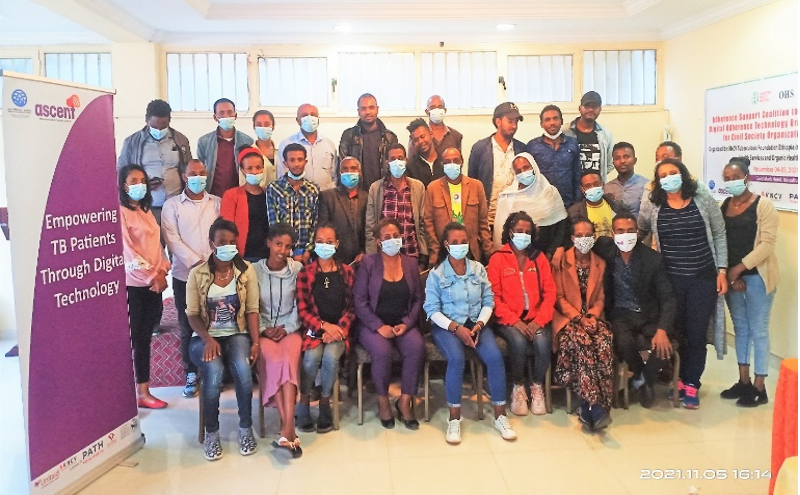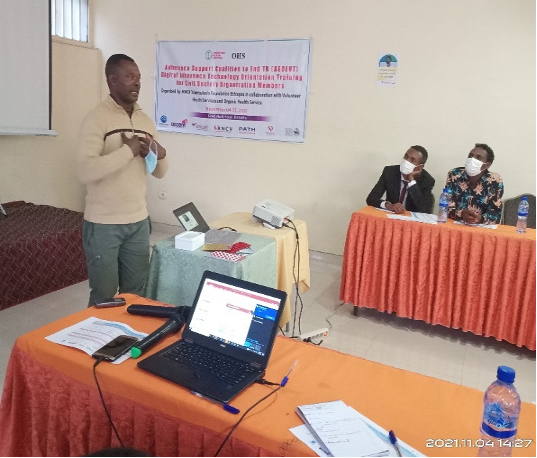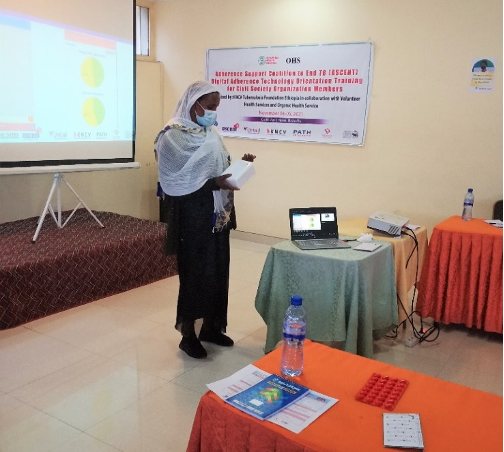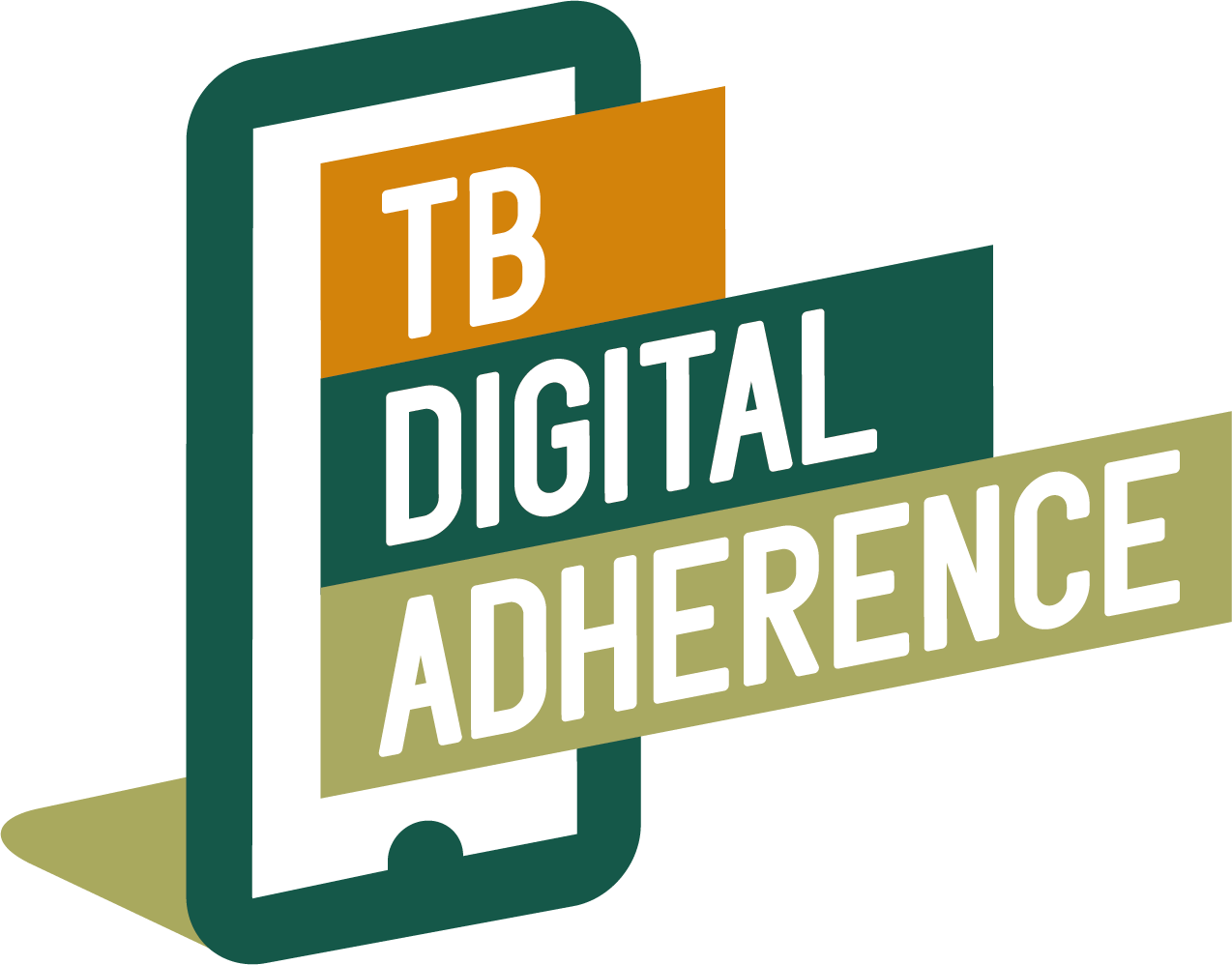ASCENT Ethiopia conducted an orientation meeting for civil society organization members
ASCENT in Ethiopia conducted an orientation meeting on digital adherence technologies (DAT) for two civil society organization (CSO) members to ensure community engagement activities. The Unitaid funded, KNCV Tuberculosis Foundation led ASCENT project aims to improve tuberculosis (TB) patient treatment outcomes by the use of digital adherence technologies. By engaging CSOs, ASCENT Ethiopia intents to better understand the acceptance of DATs in country context, provide insight for continuous refinement of the intervention, establish fora for discussion, dissemination of results and to advocate for the adoption of the technologies by country programs and funders.

The orientation meeting was attended by chief executive officers of CSOs (Volunteer Health Service & Organic Health Care Ethiopia), members of the two CSOs (TB survivors, health care workers and volunteers from different disciplines), TB survivors who completed their treatment using DATs, and representatives from Oromia Regional Health Bureau and Addis Ababa City Administration Health Bureau.
Points raised and discussed
During the orientation meeting we discussed patient centered care, meaningful community engagement and presented an introduction of DATs and an update on the implementation status of the project. This was followed by a group discussion. In the group discussion session, the participants debated about;
- Challenges of directly observed treatment (DOT) Program – which is currently the standard when treating TB patients and includes mandatory, daily, in-person meetings between the patient and health care worker.
- How DAT implementation can be improved – council patients based on their awareness level before putting them on a DAT, make the technologies more user-friendly, involve IT-professionals at facility level, review DAT implementation periodically and improve based on feedback collected and work with different stakeholders to expand use of DATs.
- What is expected from civil society organizations in advocating DATs – coordinating TB survivors that used DATs for their treatment, creating awareness among the community about the opportunity DAT provides compared to the DOT program and researching on the way DATs will be available for all patients with relevant stakeholder.
Besides that, TB survivors who followed and completed their treatment using DATs shared their experiences. One of the survivors, a soldier called Yemata was treated using the DOT approach. He said: “I got relief the day sr. Helen counseled me about use of DAT”.
Wudnesh, a retailer of vegetables, also shared her experience with both DOT and DAT.“I am life witness for use of DAT in filling gap of DOT.”


Next steps
To increase the success of the ASCENT project – and thereby further reduce the suffering, mortality and financial burden caused by TB – the next steps for the ASCENT project include:
- Conduct site visit to see DAT implementation procedure and status at facility level;
- Community TB screening at identified DAT intervention facilities which have low case enrollment;
- Preparation of patient charter to empower patients on their right and responsibilities, and
- Support and close follow-up of ASCENT project activities.
The Unitaid funded and supported ASCENT project is led by KNCV Tuberculosis Foundation in partnership with The Aurum Institute, London School of Hygiene & Tropical Medicine, and PATH.
*Article originally published by the ASCENT project can be accessed here.
